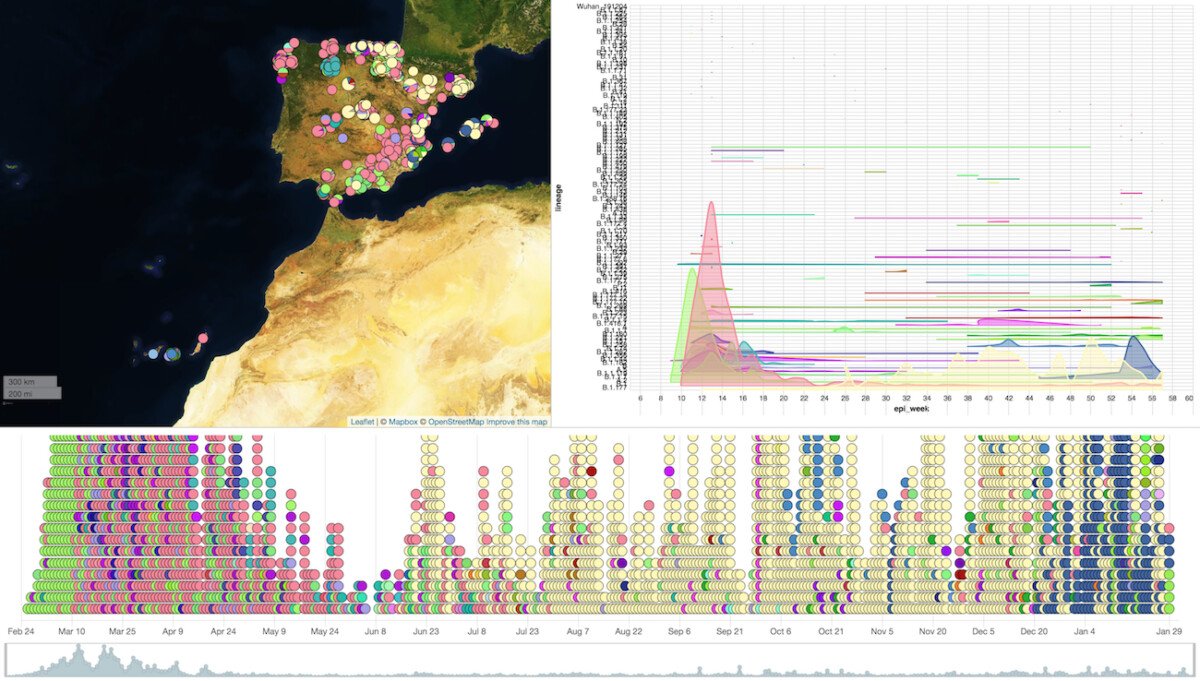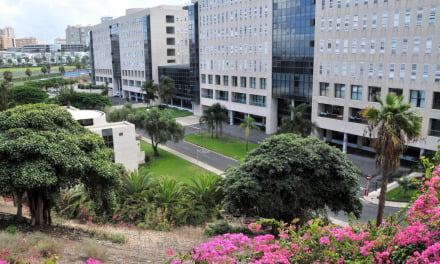A Government report yesterday, from the Spanish Ministry of Health, caused some concern here on The Canary Islands when, among its many findings, it was noticed to include a statement regarding the P2 Río de Janeiro strain of SARS-CoV-2, due to nine out of the eleven cases of that particular variants having been detected here in the archipelago. Closer examination of the report and the information contained within it, verified through local sources, have in fact shown that though this data is correct there is no concern whatsoever among the authorities as all nine of these cases appear to have been part of a known cluster in a closed outbreak that occurred within one hospital ward on Gran Canaria, and therefore is not thought to have been transmitted into the general population.
Basically, there was no reason for concern. The data used for the government report is part of an ongoing, nationwide project to track variants for analysis and help to determine the spread of variants throughout Spain.
According to the results of the study, 19.6% of the samples analyzed between December 18 and February 22 were positive for the British variant whereas 0.24% contained the variant first found in Brazil, while the rest were described as coming from the original parent strain with no currently known impacts on the biology of SARS-CoV-2.
Spain’s Ministry of Health and the various regional autonomous communities are working to agree on national criteria to carry out sampling that provides epidemiological information on the incidence of the new variants of SARS-Cov2 in Spain, the results of this research study are currently only available for The Canary Islands.
Additionally, Ministry of Health, in Madrid, published a report only yesterday on the epidemiological situation with the British variant B.1.1.7 of SARS-CoV-2, as well as other variants of interest, where it states that the Canary Islands currently has 3 cases of variant B.1.1.7 (in samples sent from the Dr. Negrín Hospital, on Gran Canaria, and sequenced at the Foundation for the Promotion of Health and Biomedical Research (FISABIO), in Valencia), as well as 46 cases detected through informal sources, similar to the cases reported by the Microbiology Service of the Hospital de la Candelaria, and 9 cases of variant P2, the Río de Janeiro strain.
 These 9 positive samples of the P2 variant correspond to samples sent by the Dr. Negrín University Hospital on Gran Canaria and sequenced at FISABIO, Valencia (whose labs have so far sequenced more than 5,000 samples), within the collaborative project named “SeqCOVID“. Within the framework of this research project, samples received at the Microbiology Laboratory have been sent from the Hospital Dr. Negrín since March 2020. SeqCOVID has been working to sequence every strain detected in Spain to allow timely information regarding the spread of variants and mutations throughout Spain and The Canary Islands. With the help of various labs across Spain the project has so far managed to sequence over 7,000 samples of the more than 18,000 that have been sent for study, and the project continues allowing Spain’s ministry of health to map the incidence of dominant strains over time.
These 9 positive samples of the P2 variant correspond to samples sent by the Dr. Negrín University Hospital on Gran Canaria and sequenced at FISABIO, Valencia (whose labs have so far sequenced more than 5,000 samples), within the collaborative project named “SeqCOVID“. Within the framework of this research project, samples received at the Microbiology Laboratory have been sent from the Hospital Dr. Negrín since March 2020. SeqCOVID has been working to sequence every strain detected in Spain to allow timely information regarding the spread of variants and mutations throughout Spain and The Canary Islands. With the help of various labs across Spain the project has so far managed to sequence over 7,000 samples of the more than 18,000 that have been sent for study, and the project continues allowing Spain’s ministry of health to map the incidence of dominant strains over time. From the samples sent so far, the 9 confirmed to be the P2 variant have been identified, as belonging to a closed in-hospital outbreak back in December 2020.
Simply put, that means that the Río de Janeiro strain is not wild out in the community and therefore less of a concern
To date, the P2 variant has not been included in any priority lists, its frequency in Brazil is still not clear, and its epidemiological or clinical effects are unknown. These samples are still going through the process of epidemiological verification, and they were analyzed in the context of a virological scientific study.










